Our areas of work 1/3
Sustainable Livelihoods
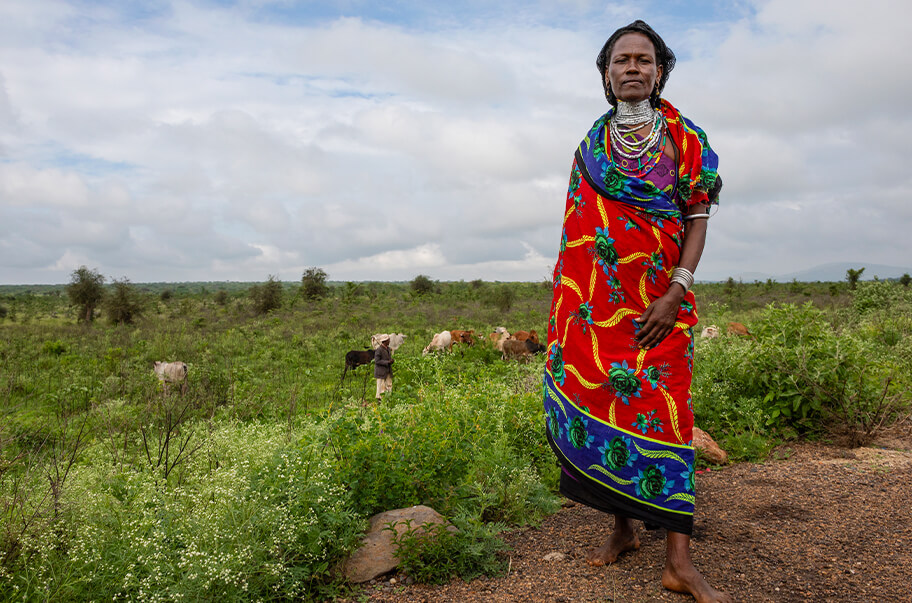
Creating long-term opportunities for communities most vulnerable to climate change, ensuring their well‑being and economic security.
130 million
Number of people who could be pushed into poverty over the next 10 years due to climate change.
Source: World Bank
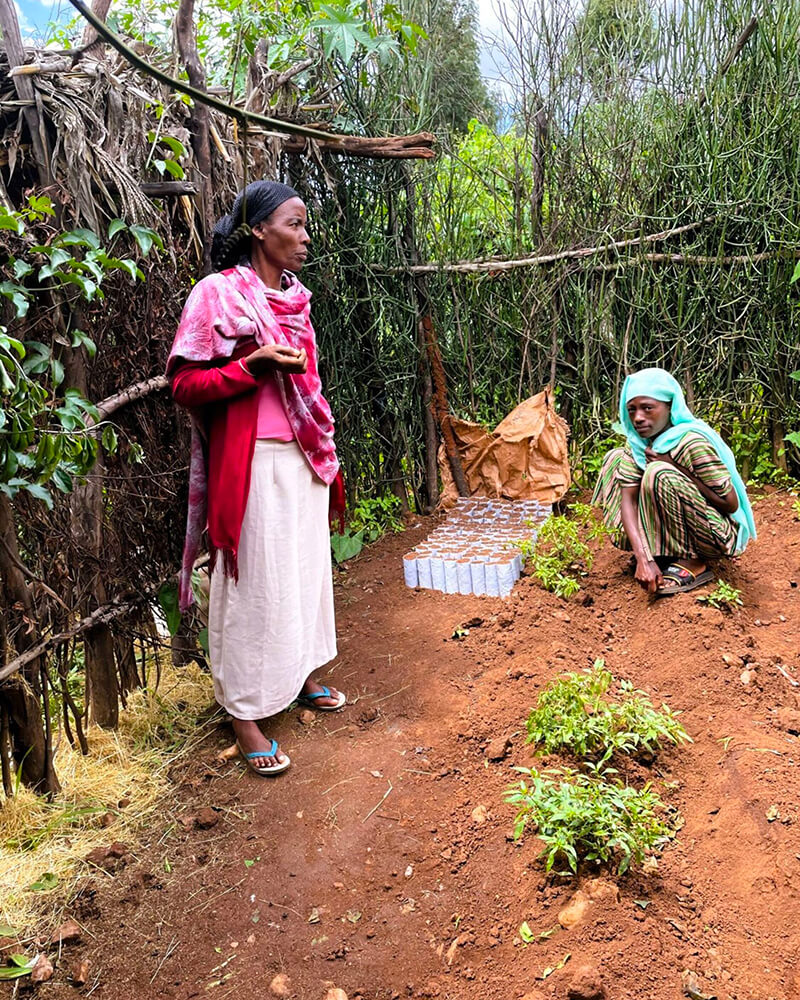
Sustainable Livelihoods
The Trafigura Foundation invests in solutions that enable communities to overcome the impacts of climate change and other challenges, empowering them to build more resilient livelihoods.
In many countries, small businesses form the core of local economies and their communities. However, they often struggle to thrive because of multiple barriers, including shortages of capital and know-how, and limited access to markets.
Climate change adds to the challenge, bringing risks such as shifting temperature and rainfall patterns and extreme weather events – especially in the agricultural sector – and rising demand for low-carbon and climate-resilient products and services.
In 2024, the Trafigura Foundation supported several initiatives to equip small businesses (often grouped as MSMEs, or micro-, small- and medium‑sized enterprises) with the means and knowledge they need to overcome these challenges, seize new opportunities and catalyse sustainable development in their localities.
Through its partners, the Foundation also invested in global and regional programmes to provide people from disadvantaged communities, including youth and women, with the skills they need to find work in the green economy of the future, or to kickstart their own climate‑resilient businesses.
58 trillion
More than half of global GDP is generated in sectors moderately or highly dependent on nature.
Climate-resilient enterprise
For example, the Foundation has stepped up its support for Root Capital, a key partner in our portfolio that is working to strengthen agricultural communities across Africa, Asia and Latin America.
Under a partnership established in 2022, the Foundation has backed Root Capital’s initiative to provide agricultural cooperatives in Peru with services including financing, training in business management and climate resilience planning. This support has helped these enterprises grow, increase their creditworthiness and become more climate-resilient, while also improving the incomes of 4,000 producers and their families.
By 2024, when the partnership ended, the programme had advised 19 cocoa cooperatives, held five workshops on climate resilience, and made loans to two businesses, both of which have been repaid in full.
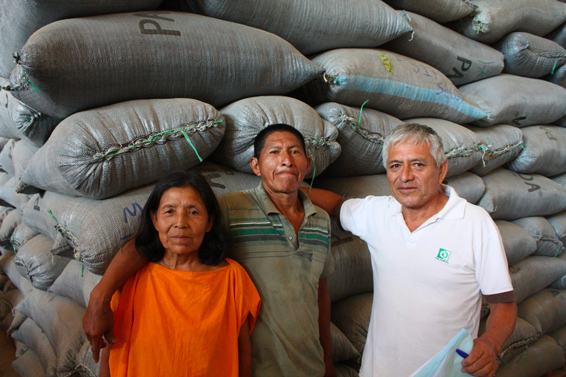
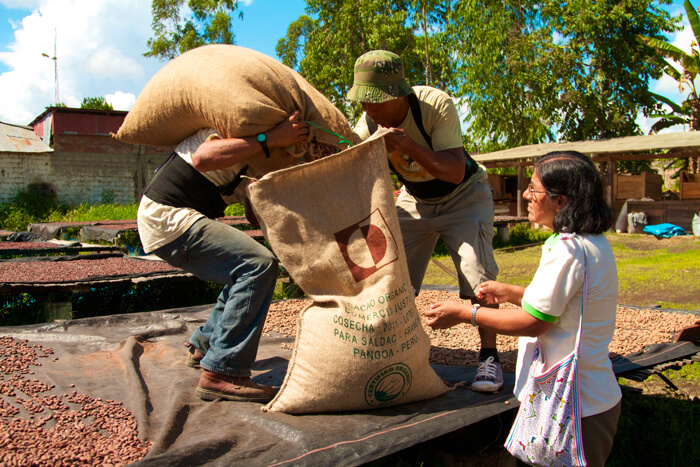
The Foundation has since agreed an expanded partnership with Root Capital, including the development and launch of the next stage of its climate strategy. This envisions elements including more loans to businesses that act as “climate action leaders” in their communities and expanded advisory services on sustainable supply chains.
“Root Capital remains committed to building the prosperity and resilience of smallholder communities by supporting high-impact agricultural enterprises, especially early-stage organisations primed for growth,” said Elizabeth Teague, Senior Director of Climate Resilience at Root Capital. “We greatly appreciate the Trafigura Foundation’s partnership and support of our shared goals to create inclusive economic opportunity and promote climate action in Peru and other underserved communities.”
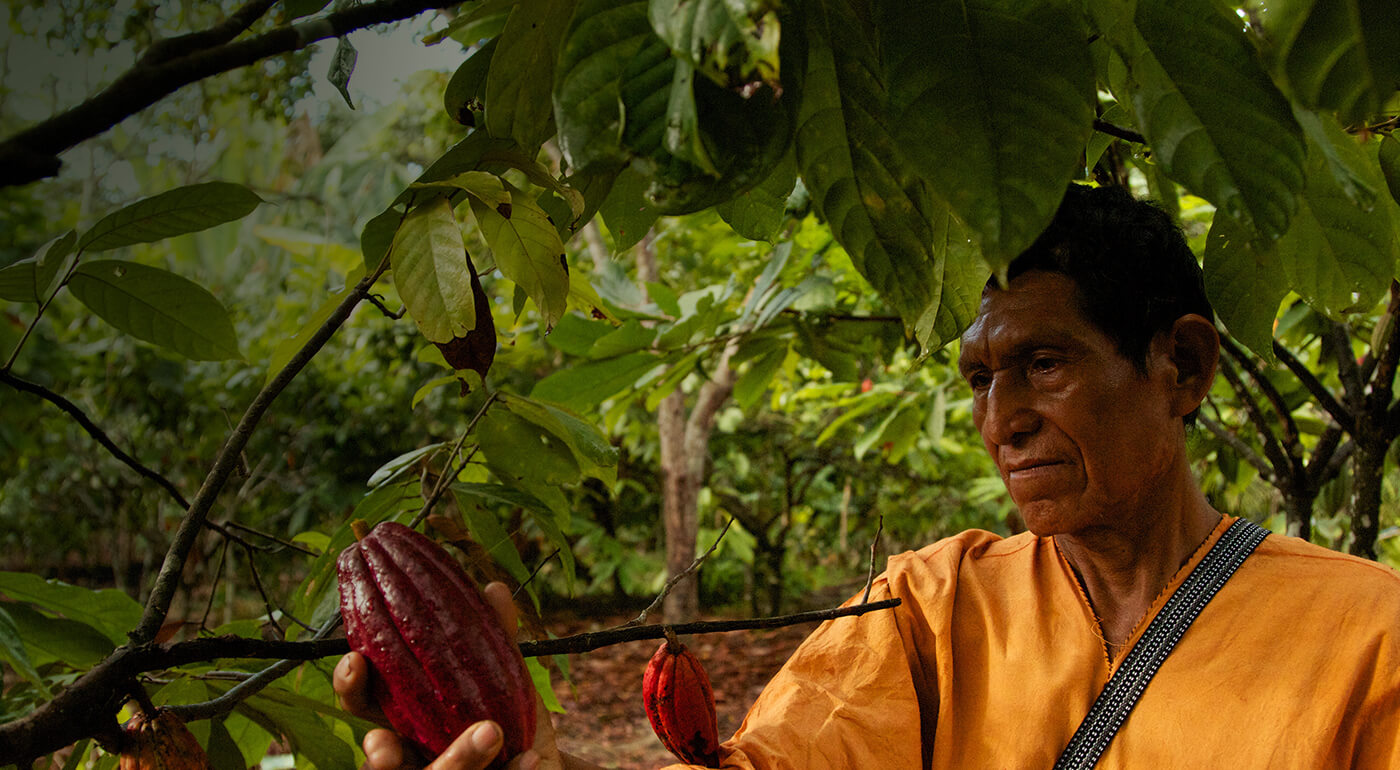
9/10
Small businesses represent about 9 out of 10 businesses globally, account for two-thirds of jobs worldwide and contribute about half of global GDP. The MSME financing gap has been estimated at up to USD 8 trillion.
Strengthening cocoa producers in Peru
In 2024, Root Capital financing enabled Pangoa, a cocoa and coffee cooperative in Peru’s Selva Central, to purchase cocoa from smaller producers, offering competitive prices, technical support, and fermentation and drying services.
As a result of Pangoa’s support, several of these producers came together to establish their own cooperatives. With Root Capital’s advisory services, these newly‑formed cooperatives are building business management skills and strengthening their capacity to sell directly to large exporters and access credit.
In this way, our partnership has enabled Pangoa to emerge as an anchor and catalyst for development in the region.

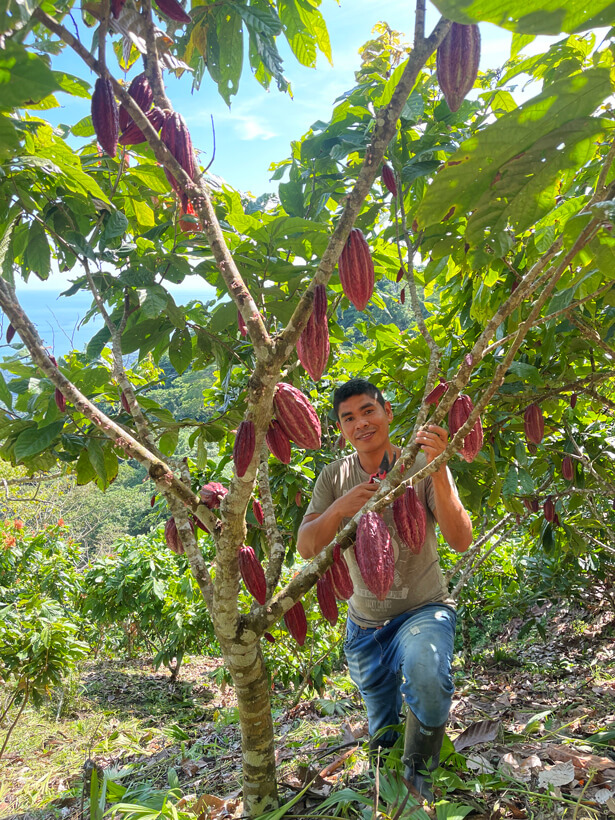
Enabling small businesses to deliver development is also at the heart of two more partnerships that flourished in 2024
Our support has allowed the Peace Dividend Initiative to develop a strategy for fostering climate-resilient entrepreneurship in regions affected by conflict and climate risk and begin to pilot it, with the first six small businesses receiving support in 2024. The organisation has also developed an impact investment vehicle that is ready to begin fundraising.
“From coffee farmers in Colombia to women entrepreneurs in the Autonomous Region of Bougainville in Papua New Guinea, the support has been catalytic, innovative, and most importantly, supported entrepreneurs working to build businesses in some of the hardest to reach and most conflict‑affected places on Earth”, said Liam Foran, Chief Executive Officer of the Peace Dividend Initiative.
Meanwhile, our partner Conexsus is boosting the development of community-based businesses in the Brazilian Amazon by helping them to access markets for sustainable forest products.
In 2024, Conexsus put together a contracting protocol for community enterprises to engage with large companies willing to purchase their produce. The protocol was piloted in several different supply chains, including rubber, açai and cocoa, paving the way for its deployment at a larger scale. Conexsus also designed a framework to monitor businesses’ social and environmental impacts, along with associated tools and software.
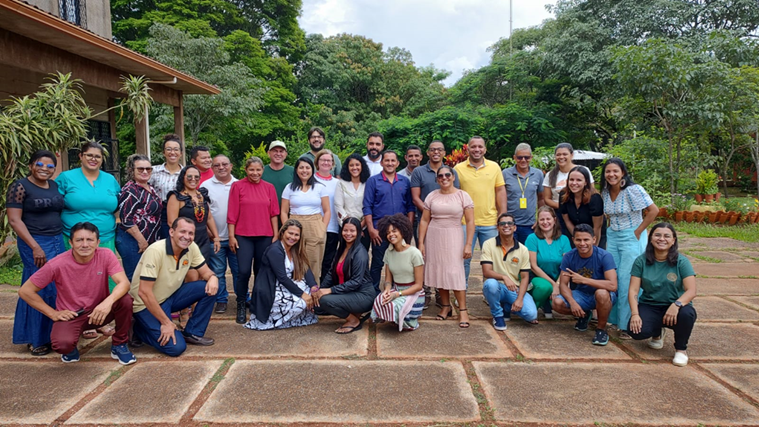

Voice of partners
The Trafigura Foundation is a rare philanthropic partner, willing to take risks and make long‑term commitments to pursue impact.
Liam Foran
Chief Executive Officer, Peace Dividend Initiative
Skills for a green future
As well as supporting existing businesses to professionalise and become more efficient, our partners provide training and resources to help thousands of people launch their own ventures or find work in emerging sectors.
For example, BOMA is enabling women from pastoralist communities in Ethiopia’s Oromia region to establish small businesses and savings groups that diversify family incomes and provide alternatives to environmentally harmful activities such as charcoal making. By the end of 2023, 700 business groups, many of which run « green » micro-enterprises, had been established with the aim of lifting approximately 13,000 people out of extreme poverty.
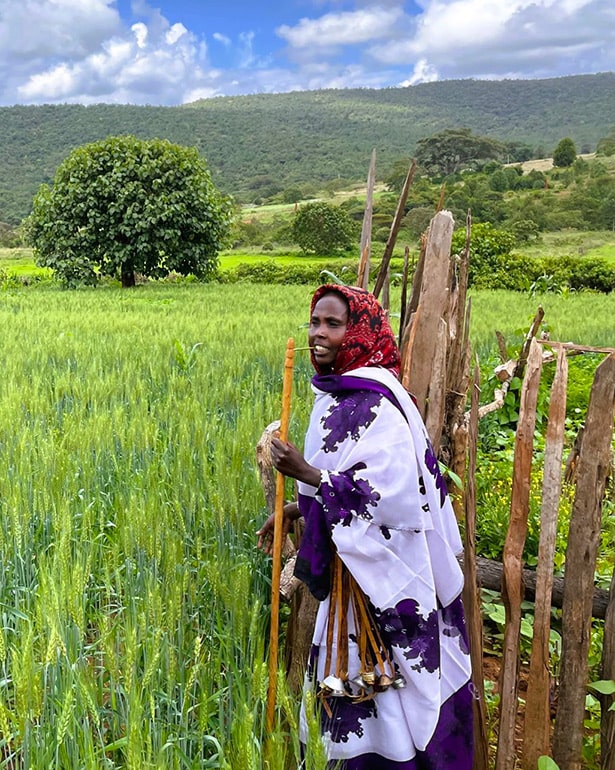
supported by BOMA, now engages in
crop farming alongside cattle rearing.
She grows peppers and beans and
plans to plant fruit trees on her plot.
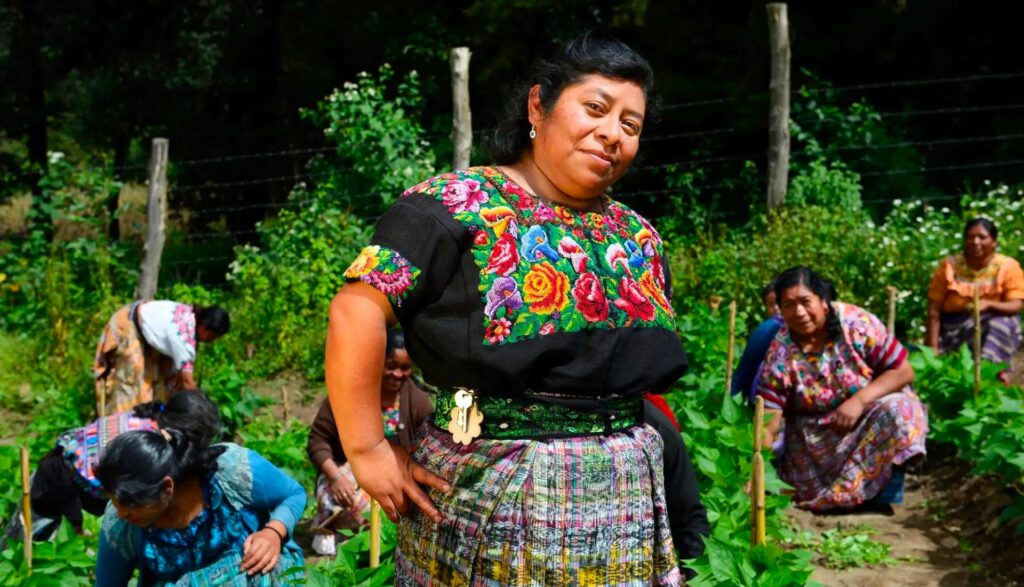
Our approach
Investing in solutions that empower communities to adapt and thrive in a climate‑driven economy.
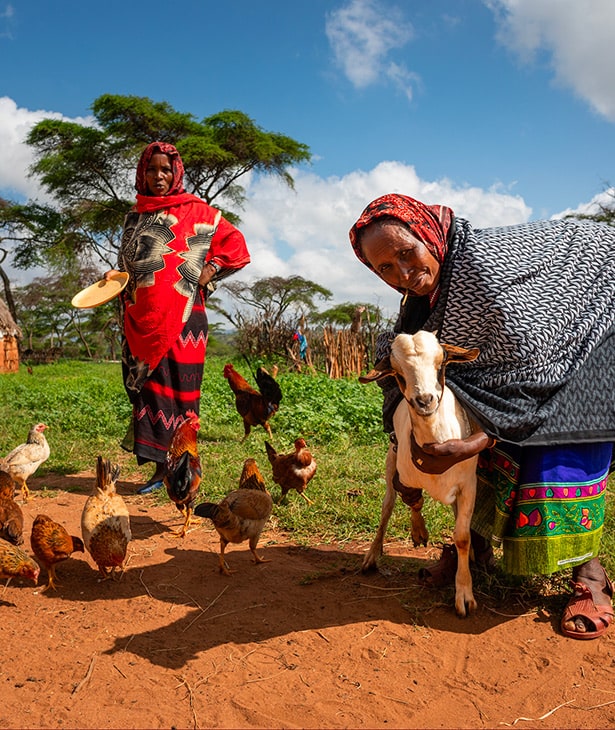
Building a green business in Ethiopia
Training, mentoring and a grant from our partner BOMA enabled three young women in Teltele, in the Oromia region of Ethiopia, to establish a solar-powered business charging mobile phones for a small fee.
The group’s village now has reliable access to communication and information, including weather forecasts vital for farmers in the drought-prone region. The group has since diversified into trading and selling cereals, building further resilience to sudden shocks.
The group, which also provides power to five households, has since diversified into trading cereals.
In all, 2,000 women have been enrolled in BOMA’s Green REAP (Rural Entrepreneur Access Project) in Ethiopia.
In North Africa and the Middle East, our partner Education for Employment is providing young people with future-proof skills and training so they can succeed in their careers.
In 2024, support from the Foundation enabled Education for Employment to continue its successful work to address youth unemployment and foster sustainable businesses in Egypt.
Under a concurrent partnership sealed in 2024, Education for Employment has begun upgrading its strategy so that it can help the region’s burgeoning youth population to find opportunities especially in the green and circular economy.
1/4
Nearly one-quarter of youth in the Middle East and North Africa are unemployed, higher than any other region of the world.
Source: International Labour Organization
Results of our partnerships since 2018* with Education for Employment in Egypt:
- 798 youths graduated from training programmes
- 579 placed in sustainable jobs, self‑employed or launching a business
- About 3,000 youths and family members reached
*as of February 2024
At the macro level, our partners Partnership for Central America and Clim-Eat are working with governments, the private sector and other stakeholders to develop innovative policy frameworks and broader collaboration to advance sustainable development at scale.
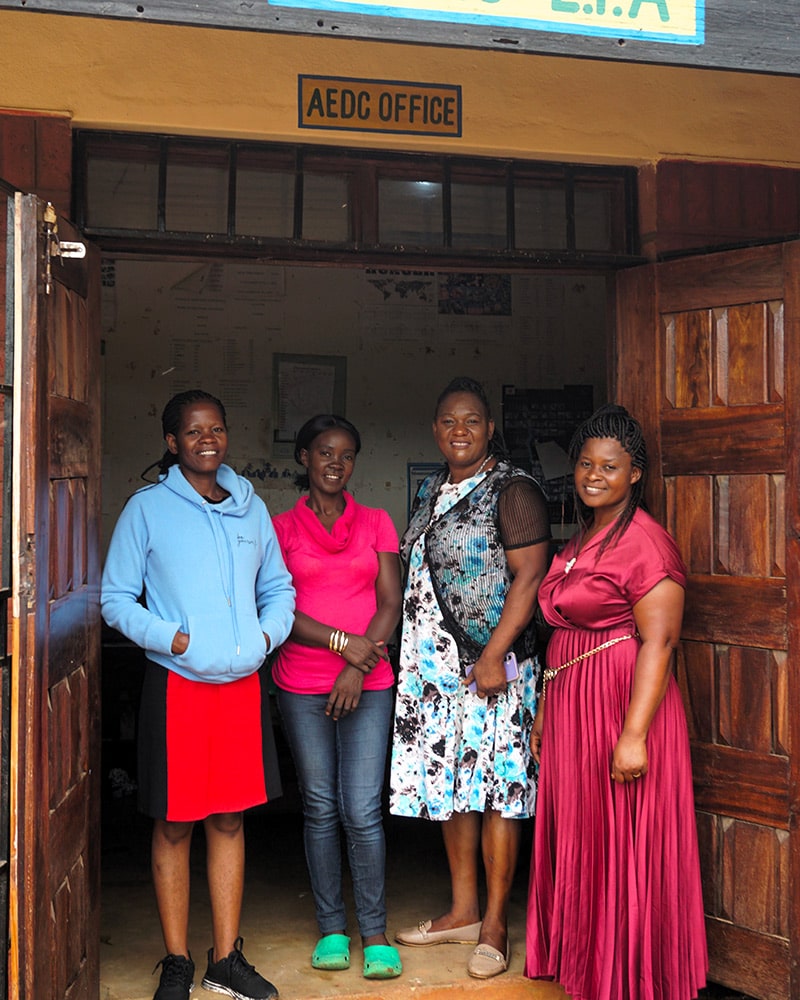
New in 2025
The Trafigura Foundation has launched a partnership with Nuru, which works with communities in fragile communities in East and West Africa to strengthen locally-led cooperative agribusinesses and cultivate community prosperity.
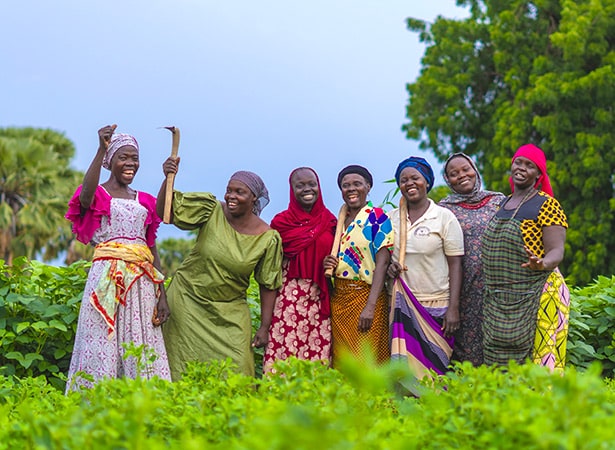
This partnership aims to assist 75 cooperatives, benefit 60,000 people, boost climate resilience among 70% of farmers, and increase yields and incomes by 30%.
The Foundation will also partner with Beneficial Returns, an impact investment firm, to provide capital to social enterprises that address poverty and protect the environment in emerging markets in Latin America and Southeast Asia, with a focus on indigenous communities.

Voice of partners
The work in Malawi has seen the development by the government of a pilot scheme for soil health management for 24,000 farmers that enhances livelihoods, improves soil health and helps adapt to climate change. Lessons learnt from two growing seasons will then be used to formulate policy recommendations.
Bruce Campbell
Chief Innovation Strategist, Clim-Eat
